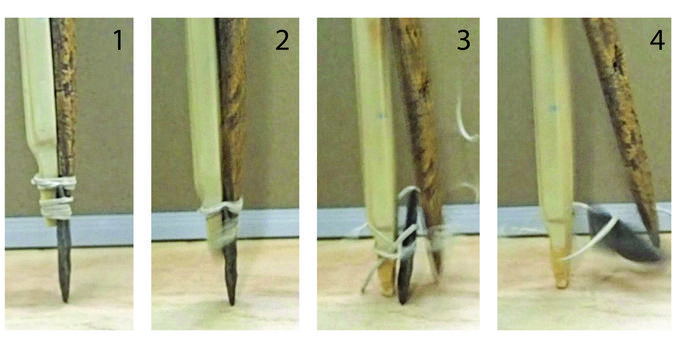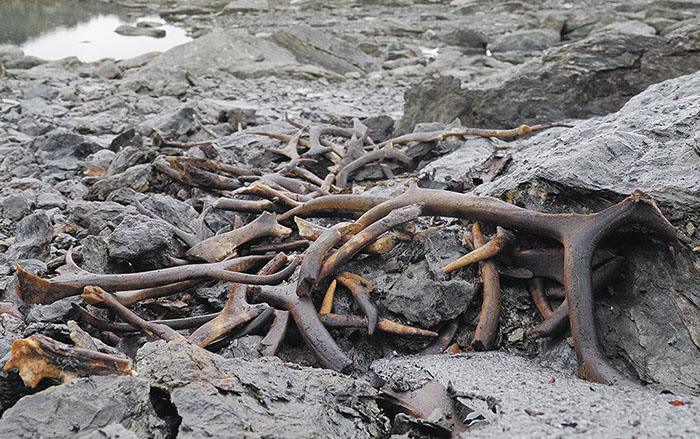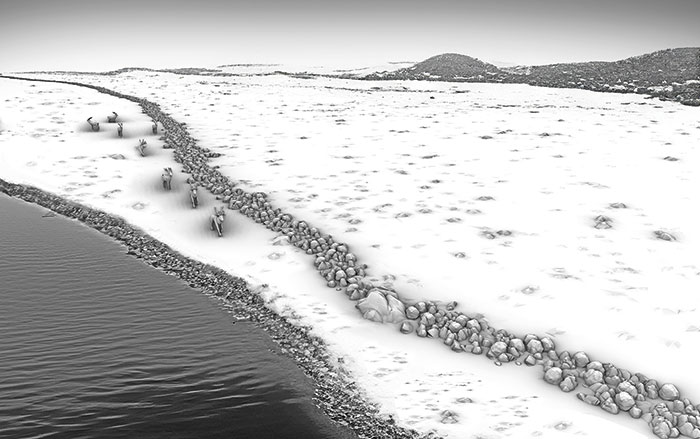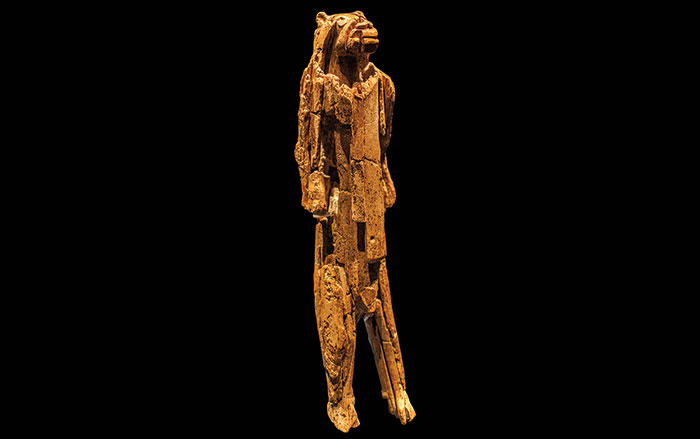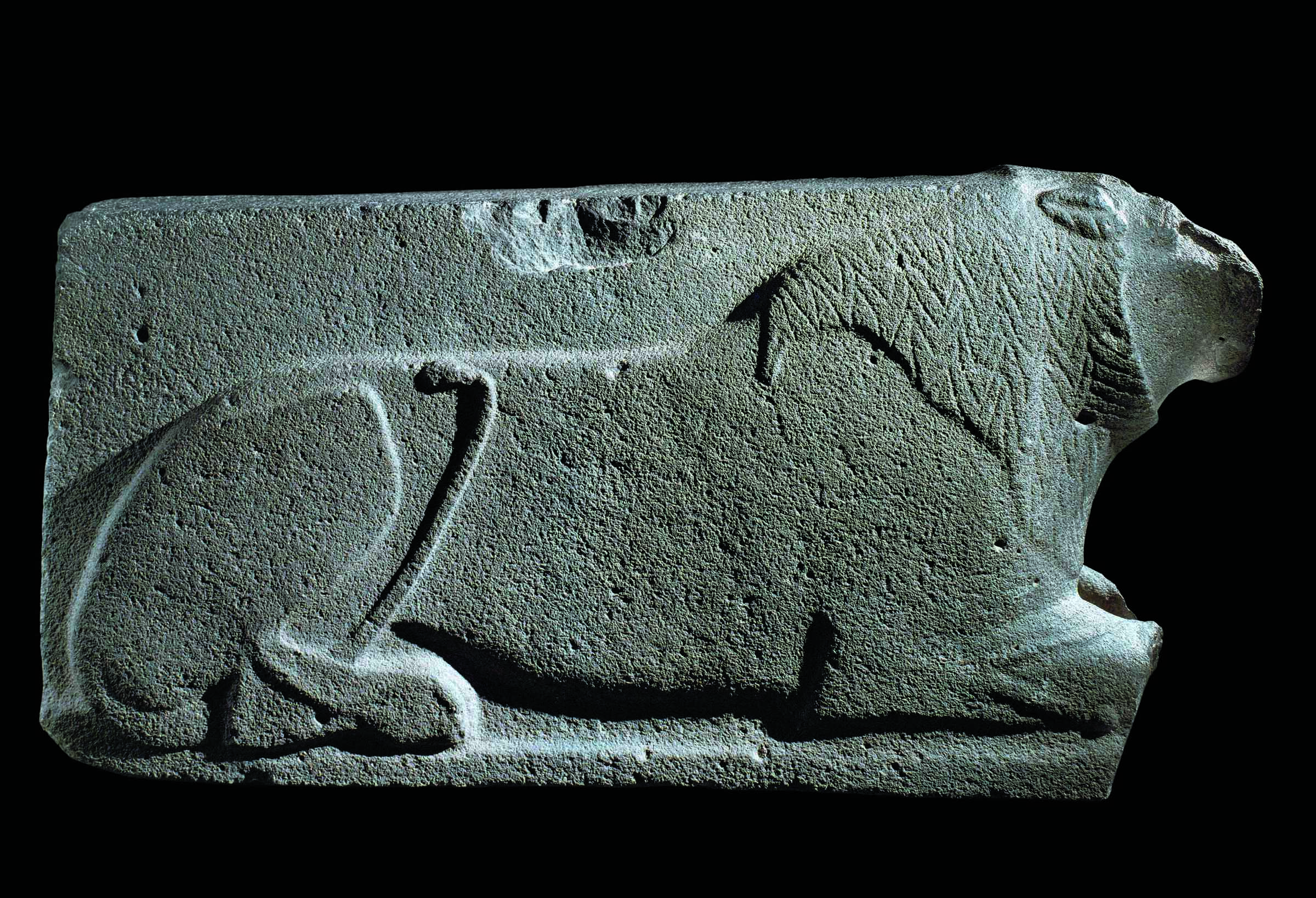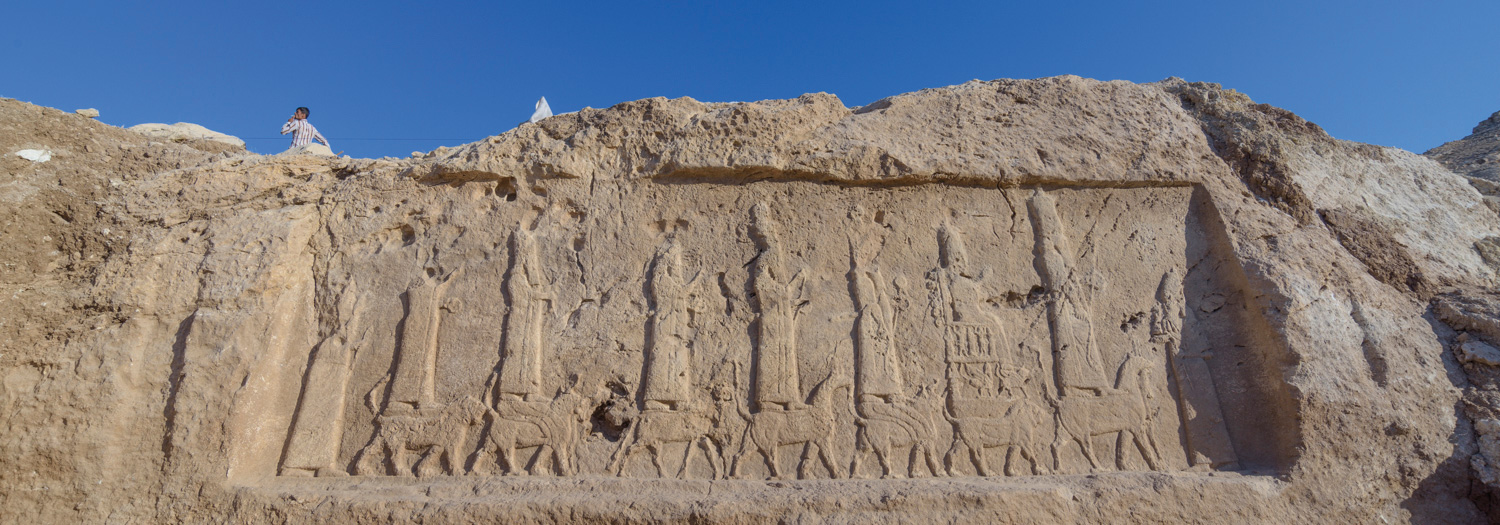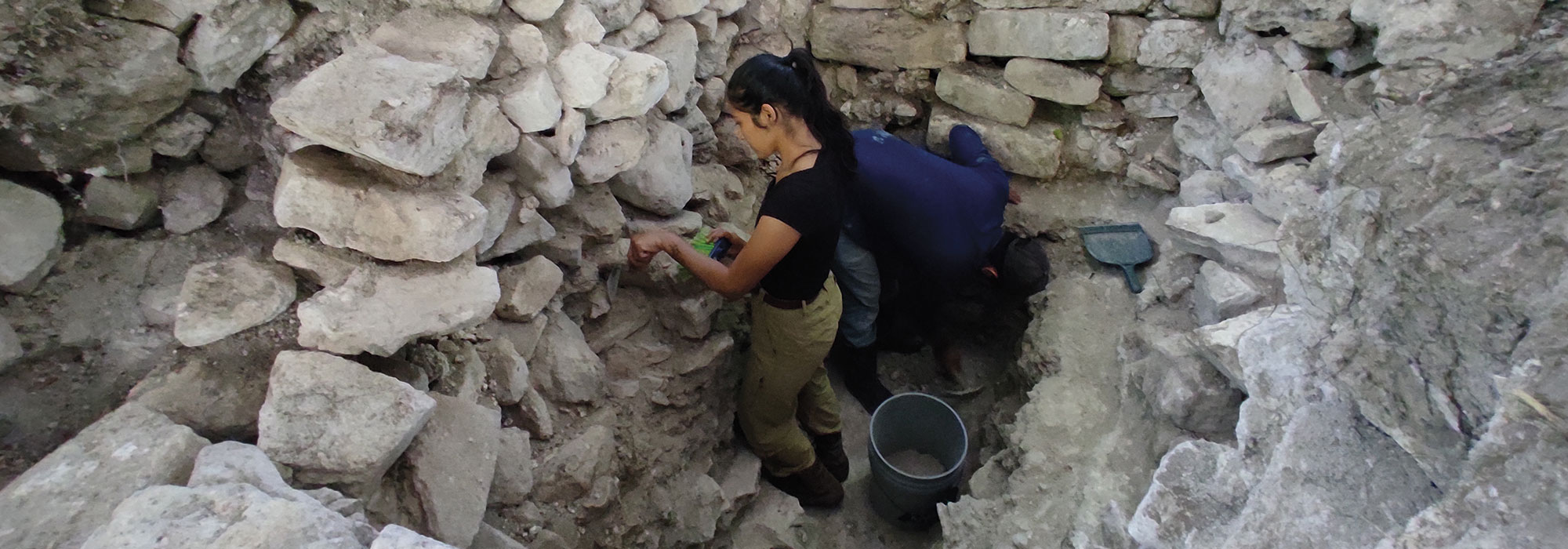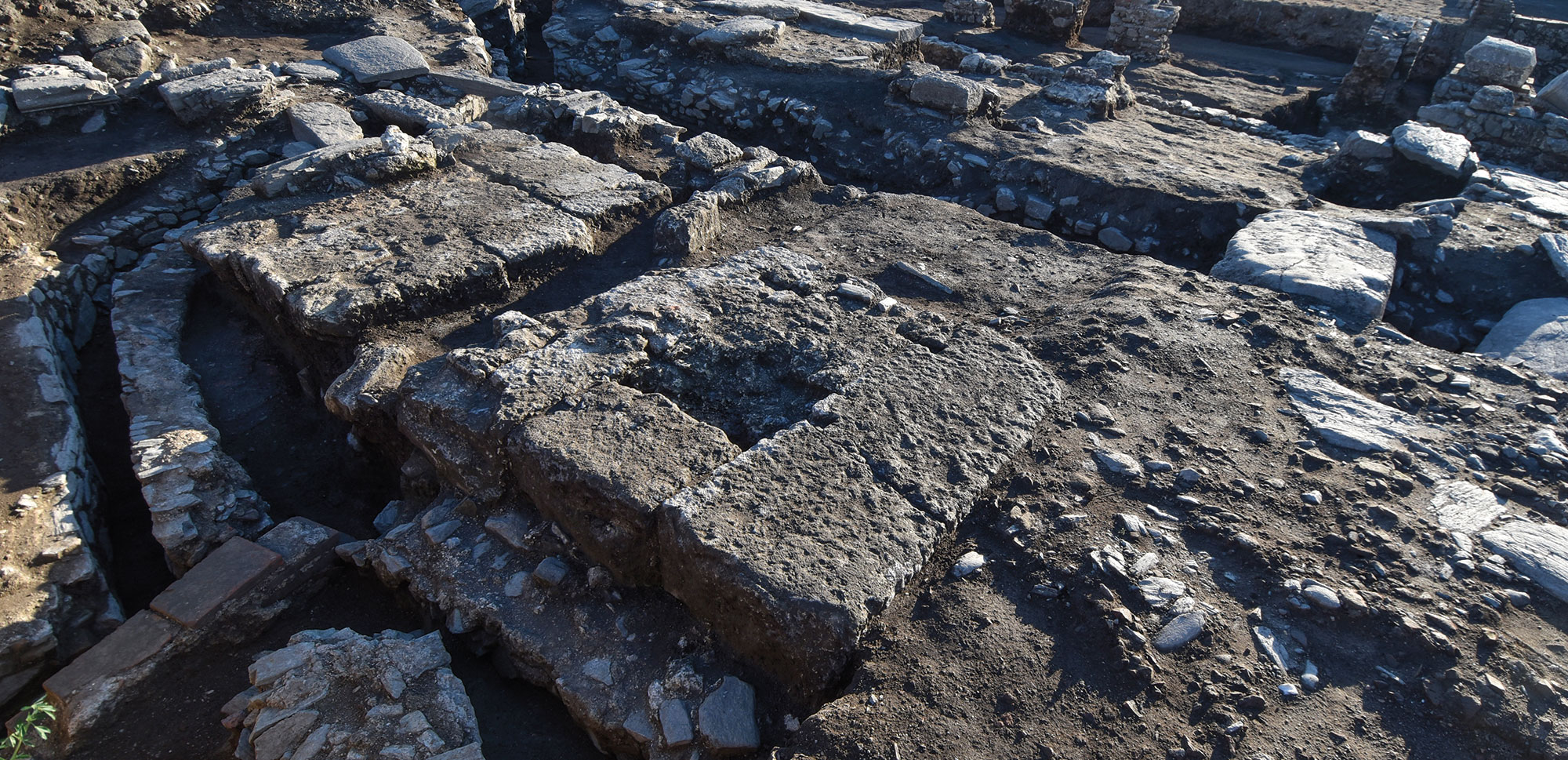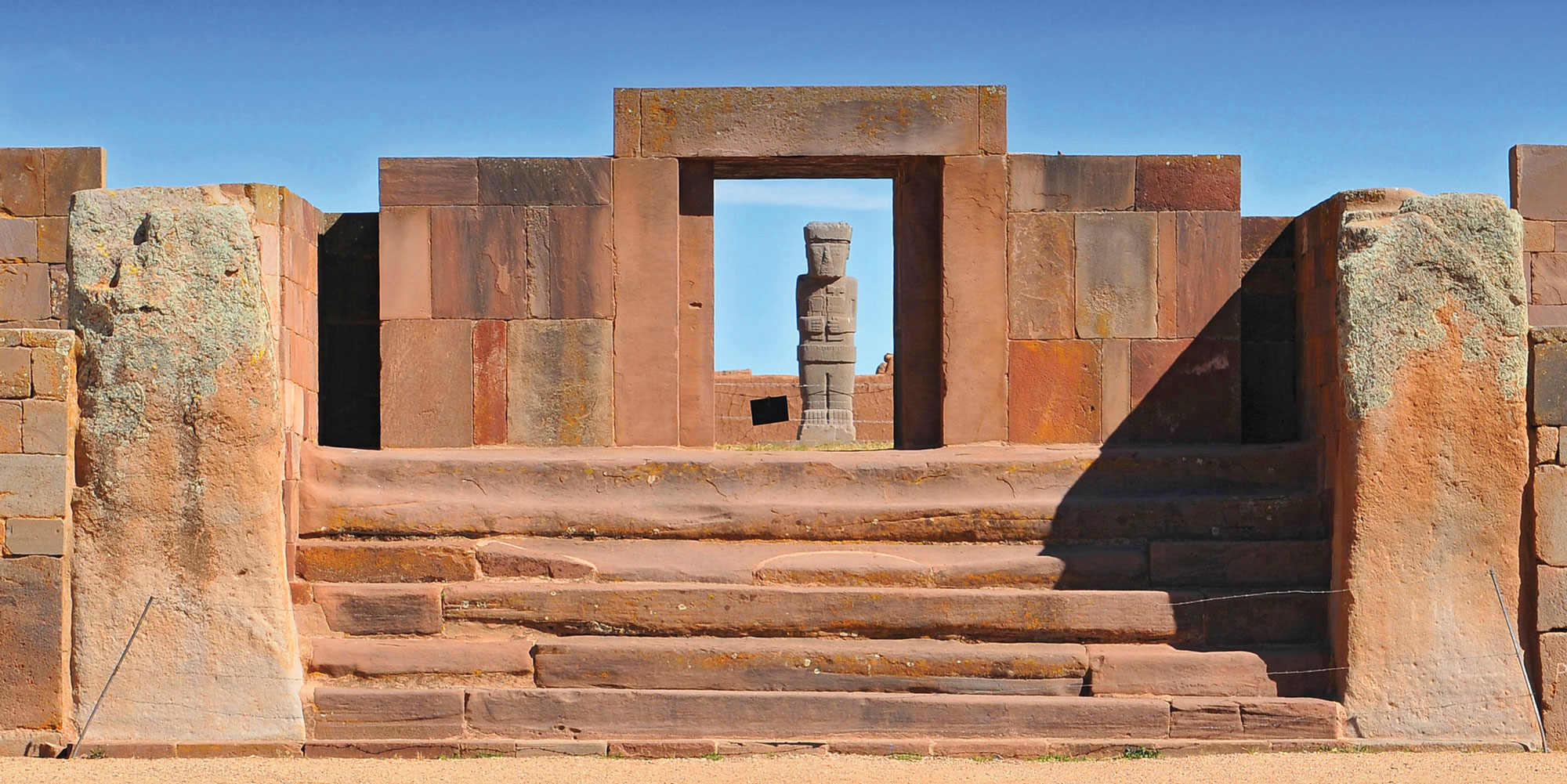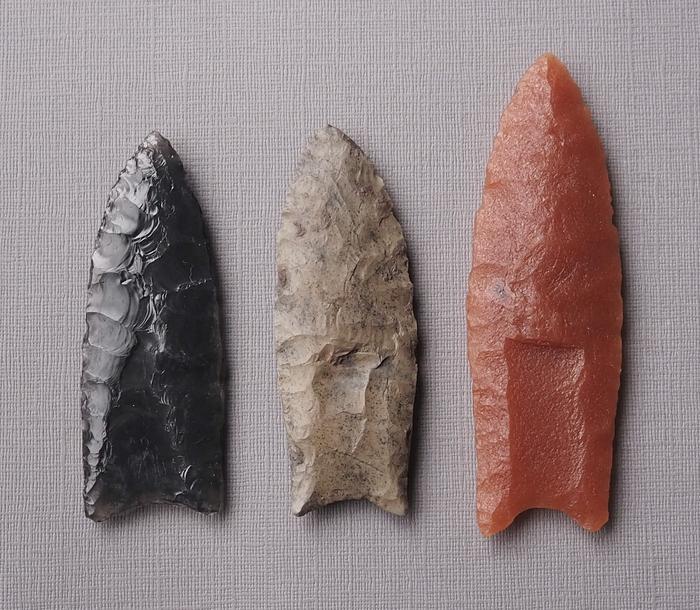
BERKELEY, CALIFORNIA—According to a report in The Guardian, Scott Byram, Kent Lightfoot, and Jun Sunseri of the University of California, Berkeley, suggest that Clovis points, the 13,000-year-old fluted projectiles found in North America and northern South America, were not thrown as spears by Clovis hunters. Instead, the researchers suggest that Clovis points were attached to pikes braced in the ground to impale charging megafauna. The resulting force would have been more damaging to the prey than a thrown weapon, they argue. They first reviewed historical evidence from around the world related to how people have hunted and fought with planted spears. Then, the researchers simulated sharpened stone points placed on pikes entering a large, charging animal by dropping a replica Clovis point lashed between a wooden pole and a bone rod on an oak plank, which was used to represent an encounter of the weapon with an animal bone. They found that the weapon could potentially inflict serious wounds. Future research will test possible Clovis weapons on a “replica mammoth” made with ballistics gel mounted to a heavy, moving object. Read the original scholarly article about this research in PLOS ONE. For more on the Clovis culture, go to "America, in the Beginning."


